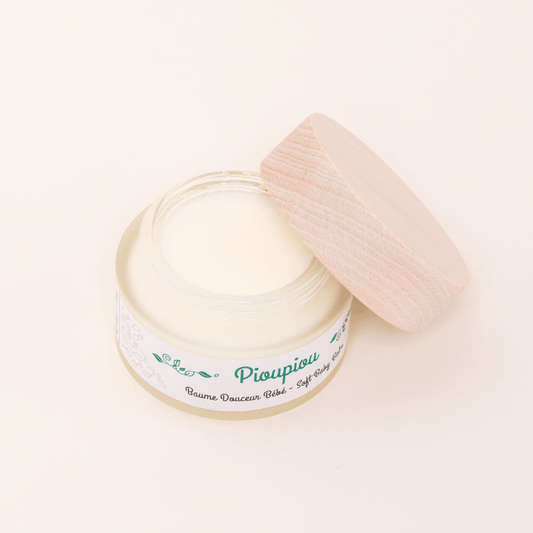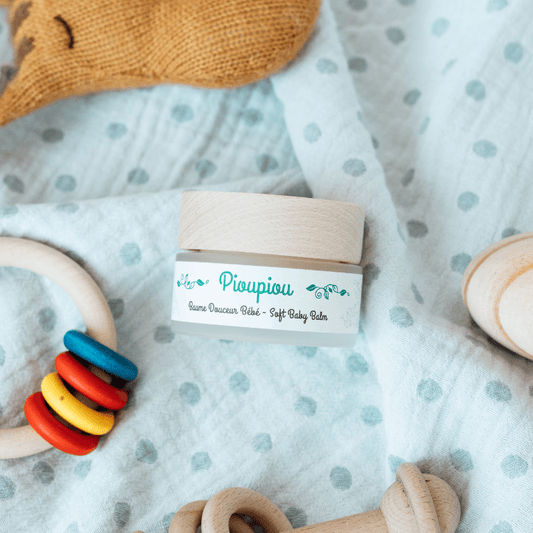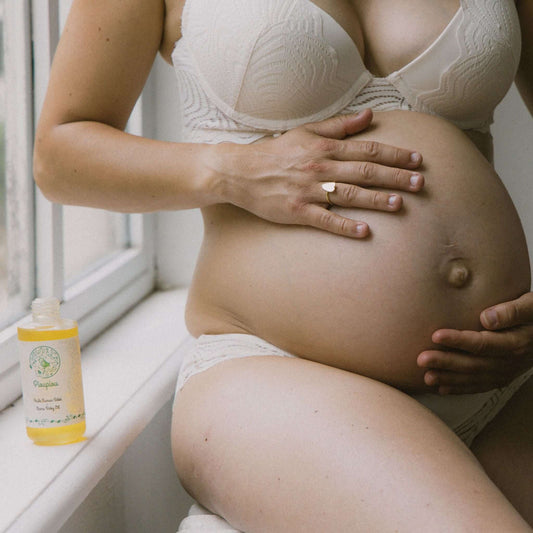BABY SMILES
Share
At what age does a baby start to smile and why?
A baby's smile is one of the most emotional moments for parents. But when does it happen and what does it really mean? This gesture, much more than a simple reflex, plays a key role in their emotional and social development .
In this article, discover:
✔ At what age does baby start to smile (and why).
✔ How to recognize a reflex smile from a social smile .
✔ How to encourage baby to smile naturally.
✔ The importance of a calming environment to stimulate expressions of joy.
Why does baby smile from birth?
Did you know that babies can smile their first few days after birth? These expressions are actually involuntary reflexes and not yet a response to an external stimulus.
🌙 The reflex smile : Often observed when babies are fast asleep, this smile is a natural reaction of the nervous system. It does not yet reflect any conscious emotion.
👶 The angelic smile : this peaceful expression can melt the hearts of parents, but it remains instinctive and independent of an emotional exchange.
When does baby start to smile consciously?
The first true social smile usually appears between 6 and 8 weeks . This is a key turning point in a baby's development , as it marks their first emotional exchanges with those around them.
💡 This conscious smile means that baby is recognizing his parent , reacting to his environment and trying to communicate . It is often one of the first signs of attachment and emotional connection .
🔹 At 2 months: Baby smiles voluntarily when he sees a familiar face.
🔹 At 3 months: he begins to associate positive emotions with interactions.
🔹 At 4-5 months: bursts of laughter appear, accompanied by gurgling and expressive movements.
💬 Note: If your baby isn't smiling yet at 2 months, don't worry ! Every child develops at their own pace. Continue to talk to them, stimulate them, and observe their progress.
How to encourage baby to smile naturally?
A baby's smile cannot be forced, but it can be gently stimulated with a few key gestures:
1. Make eye contact and smile often
Babies learn a lot through mimicry. If you smile at them, they'll tend to mimic you naturally.
2. Play and interact with baby
Moments of exchange encourage his first emotional reactions :
✔ Funny grimaces and expressions.
✔ Hide and seek games ( peekaboo, hide! ).
✔ Rhymes and rhythmic songs.
3. Speak softly to baby
Your voice is one of his first reassuring points of reference . Soft, rhythmic words stimulate his reactions and awaken his positive emotions .
4. Skin to skin and massages
Physical contact strengthens the parent-baby bond and provides a sense of well-being that invites smiles. A gentle massage after bathing, for example, creates an ideal moment of relaxation .
✨ For a gentle and comforting massage , Pioupiou Cosmetics' Maman Bébé Oil , enriched with organic vegetable oils, is perfect for nourishing baby's delicate skin while promoting a moment of complicity.
Create a peaceful environment to encourage baby's smiles
A baby's overall well-being influences their desire to express joy. Here are some tips to foster a reassuring and smiling environment :
🌿 Establish a calming routine
Babies love regularity. A caring environment with recurring rituals (baths, cuddles, breastfeeding, massages, etc.) helps baby feel secure and happy.
🌙 Create a calm and warm environment
- A soft light so as not to tire your eyes.
- White noise or a lullaby for a relaxing atmosphere.
- An ideal temperature around 19-20°C for optimal comfort.
💆♀️ Soothe baby with a gentle massage
After a warm bath, a massage with a natural and nourishing oil strengthens the bond while promoting relaxation .
💛 Pioupiou Cosmetics' Gentle Balm is ideal for sensitive skin, especially in winter or after bathing, for a pampering moment that promotes well-being and smiles.
🤍 Use soft and natural materials
Organic textiles and care products suitable for sensitive skin prevent skin discomfort and contribute to baby's overall well-being.
✔ Pioupiou Cosmetics Gentle Cleansing Gel gently cleanses without drying out, respecting baby's fragile skin and transforming bath time into a moment of joyful relaxation .
FAQ: Everything you need to know about baby's smile
1. Why does my baby smile in his sleep?
These are reflex smiles , which appear during REM sleep. They do not yet reflect a conscious emotion.
2. My baby isn't smiling yet, is this normal?
Every baby has their own rhythm! Some start smiling around 6 weeks , others a little later. If your baby isn't smiling after 3 months, talk to your pediatrician.
3. Do all babies laugh out loud?
No, some babies are more expressive than others. Some smile more, others express themselves differently. The important thing is that they show signs of well-being and interaction .
Conclusion: Baby's smile, a precious gift
A baby's first smiles are a key milestone in their emotional and social development . They strengthen the parent-child bond and are a wonderful indicator of their well-being .
Creating a reassuring, gentle, and stimulating environment helps encourage these magical moments. Take full advantage of these little everyday joys!










